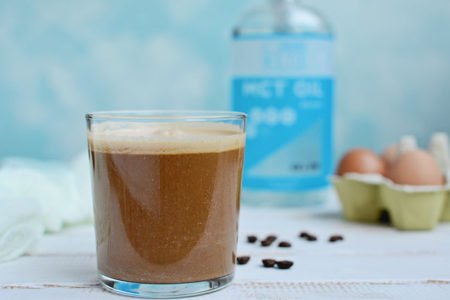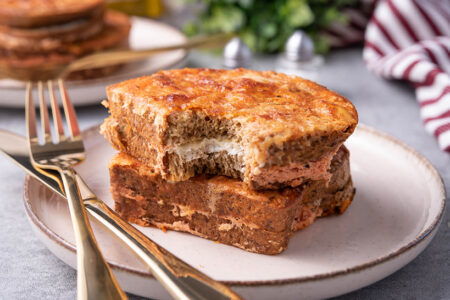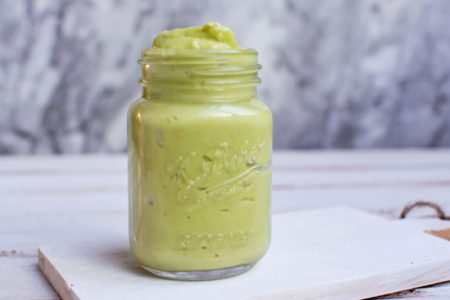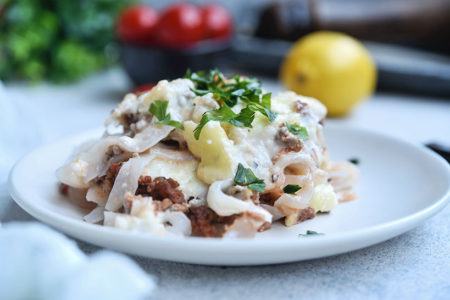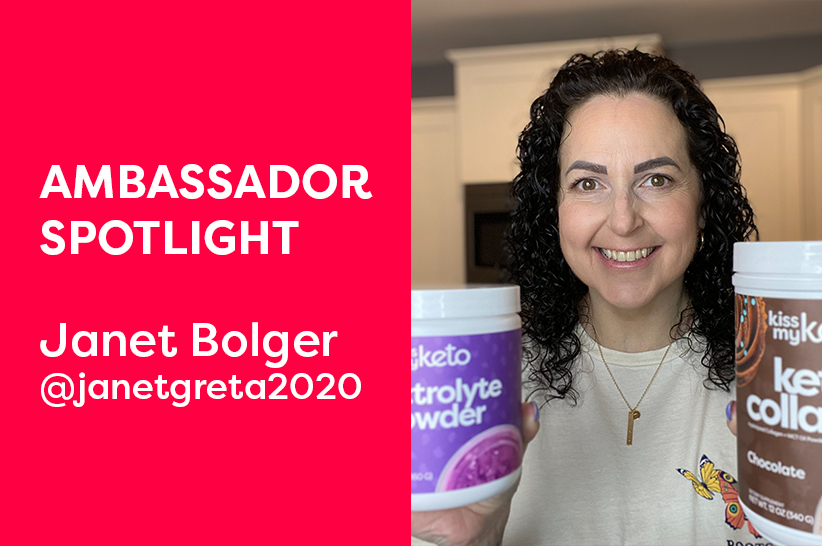Bananas aren’t low-carb keto-friendly since one medium-sized banana contains 24g of carbs. Learn more about its nutritional facts and consider these helpful tips when replacing bananas with healthy low-carb options.
The carbs in bananas vary depending on fruit size and their level of ripeness. But to keep things simple, a medium banana weighing 118g will give you approximately 24g net carbs 1. Net carbs are total carbs minus the fiber. It’s important to keep an eye on net carbs on a keto diet because these are the carbs that can kick you out of ketosis.
Besides carbs, bananas are also a rich source of many other nutrients. If you’re eager to learn more about nutrition and health benefits of bananas and if you can fit into a keto diet, keep reading.
How Many Carbs in Banana?
Like most fruit, bananas are mostly water (75%) and the rest is mainly carbs (23%). The exact amount of carbs in bananas varies depending on the fruit’s size. Below are approximate amounts of total carbs of different sized bananas:
- Extra small (81g) – 18g
- Small (101g) – 23g
- Medium (118g) – 27g
- Large (136g) – 31g
- Extra large (152g) – 34g
Bananas provide 2-4g of dietary fiber also depending on size. Furthermore, the type of carbs in bananas will vary depending on its level of ripeness.
Green or unripe bananas are rich in resistant and digestible starch. Around 80-90% of an unripe banana carb content is starch of which around 4g is resistant 2. Resistant starch is a type of indigestible carbohydrate functionally similar to fiber.
Unripe bananas also contain rapidly digestible starch and slowly digestible starch 3. Both types are considered better for metabolic health than simple sugars 4. That’s because they are digested more slowly leading to a more favorable slow rise in blood glucose 2.
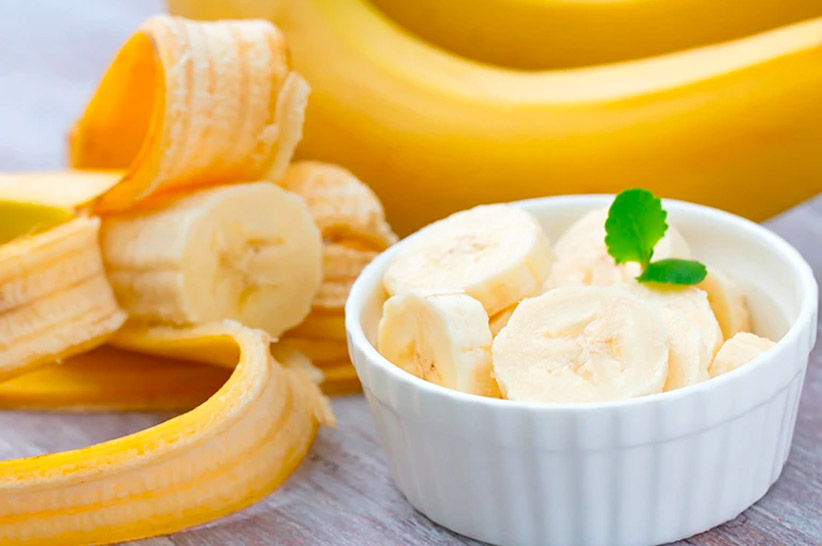
During ripening, bananas produce a gas called ethylene that stimulates the formation of an enzyme that breaks down the starch in bananas into sugar. This leads to only 1% of a ripe banana carb content to consist of starch. And that’s also why ripe yellow bananas have a sweeter taste. The sugars found in ripe bananas include glucose, fructose, and sucrose.
How many calories in bananas?
Most of the calories in bananas come from its carbohydrates. With that said, how many calories a banana provides also depends on its size:
- Extra small (81g) – 72 kcal
- Small (101g) – 90 kcal
- Medium (118g) – 105 kcal
- Large (136g) – 121 kcal
- Extra large (152g) – 135 kcal
So, a medium-sized banana will give you a little over 100 calories, all from carbohydrates. But what about unripe bananas? While they do contain some resistant starch, a green banana is still high in calories and digestible carbs. It’s just that those carbs get digested more slowly, but the total calorie count remains the same.
Nutritional value of bananas
Besides carbs and calories, bananas provide many other nutrients and benefits. Bananas are rich in fiber, vitamin C (17% DV), vitamin B6, potassium (12%DV) and manganese. Bananas also provide modest amounts of protein, vitamin A, folate, and magnesium. While bananas contain many other nutrients, these are present only in small amounts (less than 5% of the DV).
Besides important nutrients, bananas are also a source of antioxidant and anti-inflammatory compounds such as phenols, carotenoids, biogenic amines, and phytosterols 5.
| Nutrition Facts: One Medium Banana (118g) |
| Calories 105 |
| Total Carbohydrates 27g |
| Fiber 3.1g |
| Protein 1.3g |
| Total Fat 0.4g |
| Vitamin C 10.3mg |
| Vitamin B6 0.4mg |
| Potasium 421mg |
| Magnesium 32g |
Can You Eat Banana on the Keto Diet?
Bananas are high in carbohydrates, so they’re not recommended on a ketogenic diet. On keto, your daily carb intake needs to be 20-50g a day. Since one medium banana provides 24g of digestible carbohydrates, you can easily go over your daily carb limit considering you’ll be eating other foods that also contain some amount of carbohydrates.
Some keto dieters believe that sticking to green bananas or even plantains (types of bananas used in cooking) is ok on keto. That’s because these contain more resistant starches. However, there’s no proof that these won’t raise your blood glucose. And besides, a plantain needs to be cooked to be edible and cooking decreases the amount of resistant starch in food 6.
Health Benefits of Banana
For those who’re not following a low-carb diet, bananas can provide a wide range of health benefits. Below are some of these benefits explained:
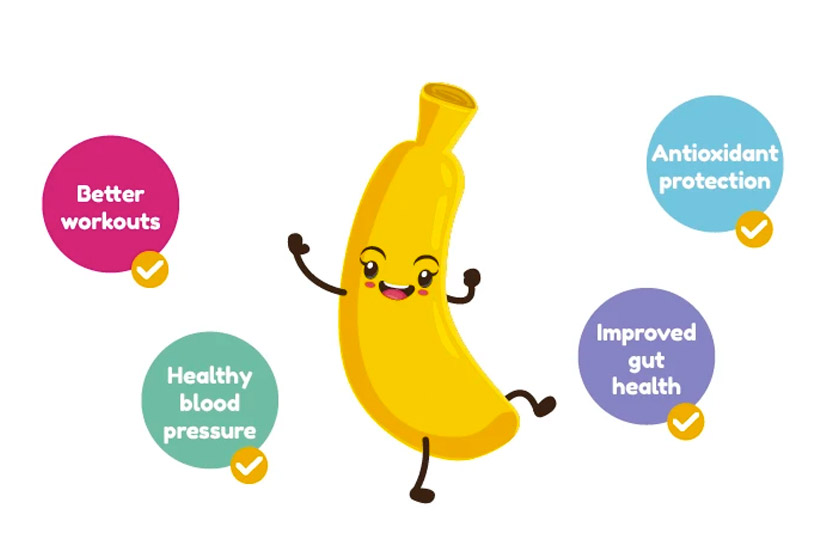
1. Better workouts
Ripe bananas contain simple carbs that can help exercise quality and recovery. A study comparing bananas to a carb-containing sports drink found that they provided similar effects but bananas provided greater antioxidant activity and even boosted dopamine levels 7. Dopamine is a feel-good neurotransmitter that also regulates attention, learning, and movement.
2. Healthy blood pressure
High blood pressure is a known risk factor for cardiovascular disease, heart attack, and stroke. Bananas contain moderate levels of potassium, which is a mineral that helps lower blood pressure by offsetting the effects of excess sodium in the diet.
3. Improved gut health
Bananas contain prebiotic fibers that feed gut bacteria. Studies show that these fibers increase the number of bifidobacteria, which are especially important for gut health 8. Unripe bananas contain more prebiotic fibers than ripe bananas, so they’re especially good for gut health.
4. Antioxidant protection
Oxidative stress from free radicals is a driver of many dangerous diseases such as cancer. Bananas, like many other plant foods, are rich in antioxidant compounds 9. Ripe bananas have more antioxidants than unripe bananas.
How to Eat Banana on Keto?
You shouldn’t really eat bananas on a keto diet. They’re among the highest-carb fruits out there. Instead, you should stick to low-carb fruit like berries, star fruit, and lemon. If you need a low-carb replacement for bananas, consider the following tips:
1. Replace bananas with avocados in smoothies
In smoothie recipes, avocados can help provide the bulking and texture similar to bananas. Avocados are rich in healthy monounsaturated fats and fiber while being very low in carbohydrates. A whole avocado provides just 4g of net carbs.
2. Replace bananas with butter and oil
In muffin, pancake, and cake recipes, you can replace bananas with nut butters, dairy butter, and even oil. Many of these recipes call for bananas to increase the meal’s moisture content, but fats provide a similar effect.
3. Replace bananas with seeds
Chia seeds and ground flax are also great thickening ingredients in keto puddings and other desserts. This is especially true with chia seeds that form a gel-like texture when soaked.
4. Stick to greens for potassium
Leafy greens often have more potassium than bananas. A bunch of spinach, for example, will give you 1897 mg (54% DV) of potassium, which is much greater than what you would get from bananas. And what’s most important, a generous bunch of spinach (~300g) has only 4.8g of net carbs.
Takeaways
- A medium-sized banana provides 24g of net carbs and 105 calories.
- Bananas are not allowed on a keto diet due to their high carb content.
- Even unripe bananas and plantains contain net carbs, which will raise blood sugar levels.
- For those not following a ketogenic diet, bananas are a good source of fiber, certain nutrients, and antioxidants.
- For those following a keto diet, replacing bananas with avocado, chia seeds, and nut butters, among other things, is a good idea.


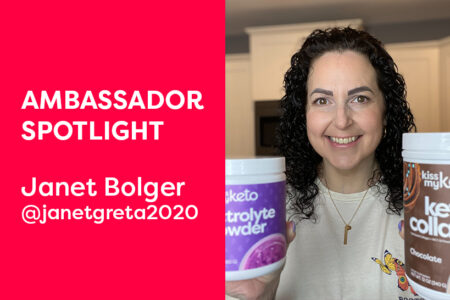

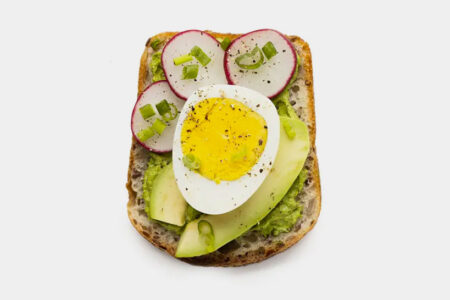
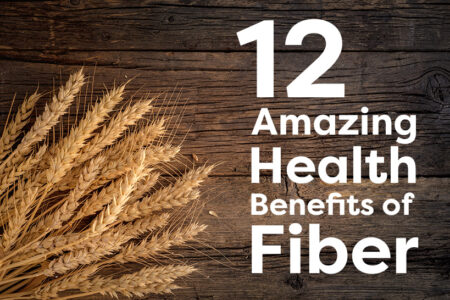


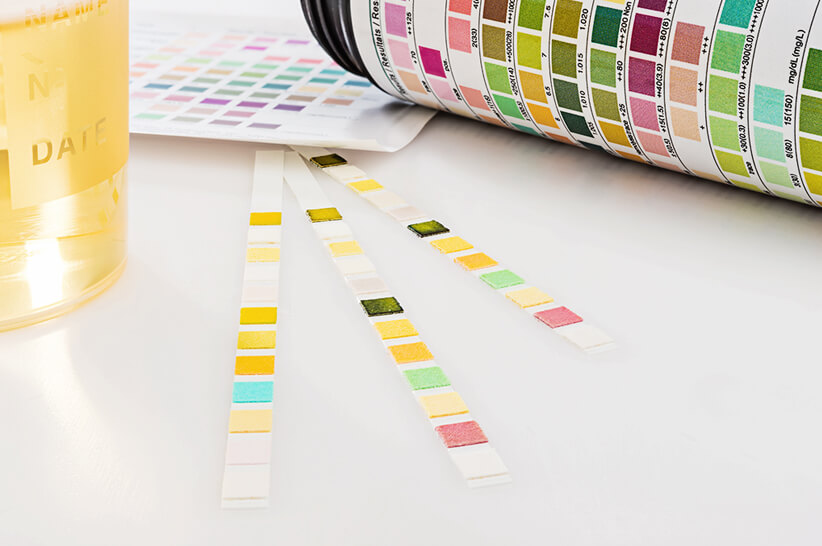
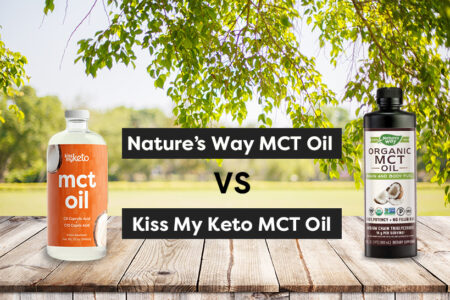
![Juicing for Weight Loss: Everything You Need to Know [Plus Recipes]](/wp-content/uploads/2019/08/Juicing-for-Weight-featured-image.jpg)

